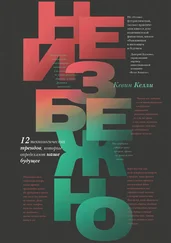Service, E. R. (1965). Primitive Social Organization: An Evolutionary Perspective . New York: Random House.
Setchell, J. M., Charpentier, M., and Wickings, E. J. (2005). "Mate Guarding and Paternity in Mandrills: Factors Influencing Alpha Male Monopoly." Animal Behaviour , 70 (5), 1105–20. doi: http://dx.doi.org / 10.1016 / j.anbehav.2005.02.021
Seyfarth, R. M., and Cheney, D. L. (2003). "Signalers and Receivers in Animal Communication." Annual Review of Psychology , 54, 145–73.
Sharer, R. J., and Traxler, L. P. (2006). The Ancient Maya . Stanford, Calif.: Stanford University Press.
Sharf, R. H. (1998). "Experience." In M. C. Taylor (ed.), Critical Terms in Religious Studies , pp. 94–116. Chicago: University of Chicago Press.
Sharf, R. H. (2000). "The Rhetoric of Experience and the Study of Religion." Journal of Consciousness Studies , 7 (11–12), 267–87.
Shariff, A. F., and Norenzayan, A. (2011). "Mean Gods Make Good People: Different Views of God Predict Cheating Behavior." International Journal for the Psychology of Religion , 21 (2), 85–96. doi: 10.1080 / 10508619.2011.556990
Sheehy, P. (2012). The Reality of Social Groups . London: Routledge.
Sidanius, J., and Pratto, F. (1999). Social Dominance: An Intergroup Theory of Social Oppression and Hierarchy . Cambridge: Cambridge University Press.
Sidanius, J., and Veniegas, R. C. (2000). "Gender and Race Discrimination: The Interactive Nature of Disadvantage." In S. Oskamp et al. (eds.), Reducing Prejudice and Discrimination , pp. 47–69. Mahwah, N. J.: Lawrence Erlbaum.
Slingerland, E. G. (2007). Effortless Action: Wu-Wei as Conceptual Metaphor and Spiritual Ideal in Early China . New York: Oxford University Press.
Slingerland, E. G. (2008). What Science Offers the Humanities: Integrating Body and Culture . New York: Cambridge University Press.
Slingerland, E. G., and Collard, M. (2012). Creating Consilience: Integrating the Sciences and the Humanities. New York: Oxford University Press.
Slone, D. J. (2004). Theological Incorrectness: Why Religious People Believe What They Shouldn't . Oxford: Oxford University Press.
Smith, A. (1767). The theory of moral sentiments. To which is added a dissertation on the origin of languages (3rd ed.). London: Printed for A. Millar, A. Kincaid and J. Bell in Edinburgh; and sold by T. Cadell.
Smith, A. (1776). An inquiry into the nature and causes of the wealth of nations . London: Printed for W Strahan and T Cadell, in the Strand, London.
Smith, A. D. (1987). The Ethnic Origins of Nations . Oxford: Basil Blackwell.
Smith, A. G. (2008). "The Implicit Motives of Terrorist Groups: How the Needs for Affiliation and Power Translate into Death and Destruction." Political Psychology , 29 (1), 55–75.
Smith, E. A. (1998). "Is Tibetan Polyandry Adaptive? Methodological and Metatheoretical Analyses." Human Nature , 9 (3), 225–61.
Smith, R. M. (2003). Stories of Peoplehood: The Politics and Morals of Political Membership. Cambridge: Cambridge University Press.
Smith, V. L. (1976). "Experimental Economics: Induced Value Theory." American Economic Review , 66 (2), 274–79.
Smuts, B. B. (1995). "The Evolutionary Origins of Patriarchy." Human Nature , 6 (1), 1–32.
Sokol, S. (2011). "Beit Shemesh Goes to the Streets." Jerusalem Post , Features Section, p. 7.
Sola, C., and Tongiorgi, P. (1996). "The Effect of Salinity on the Chemotaxis of Glass Eels, Anguilla, to Organic Earthy and Green Odorants." Environmental Biology of Fishes , 47 (2), 213–18. doi: 10.1007 / BF00005045
Solove, D. J. (2007). The Future of Reputation: Gossip, Rumor, and Privacy on the Internet . New Haven: Yale University Press.
Somit, A., & Peterson, S. A. (1997). Darwinism, dominance, and democracy: the biological bases of authoritarianism. Westport, Conn.: Praeger.
Sorabji, C. (2006). "Managing Memories in Post-War Sarajevo: Individuals, Bad Memories, and New Wars." Journal of the Royal Anthropological Institute , 12 (1), 1–18. doi: 10.1111 / j.1467–9655.2006.00278.x
Sowell, T. (2007). A Conflict of Visions: Idealogical Origins of Political Struggles . New York: Basic Books.
Sowell, T. (2011). Economic Facts and Fallacies (2nd ed.). New York: Basic Books.
Spelke, E. S. (1990). "Principles of Object Perception." Cognitive Science , 14, 29–56.
Spelke, E. S. (2000). "Core Knowledge." American Psychologist , 55 (11), 1233–43.
Spelke, E. S., and Kinzler, K. D. (2007). "Core knowledge." Developmental Science , 10 (1), 89–96.
Sperber, D. (1997). "Intuitive and Reflective Beliefs." Mind and Language , 12 (1), 17.
Sperber, D. (2000a). "Metarepresentation in an Evolutionary Perspective." In D. Sperber (ed.), Metarepresentations: A Multidisciplinary Perspective , pp. 3–16. Oxford: Oxford University Press.
Sperber, D. (2000b). "An Objection to the Memetic Approach to Culture." In R. Aunger (ed.), Darwinizing Culture: The Status of Memetics as a Science , pp. 163–73. Oxford: Oxford University Press.
Sperber, D. (2002). "In Defense of Massive Modularity." In E. Dupoux (ed.), Language, Brain and Cognitive Development: Essays in Honor of Jacques Mehler , pp. 47–57. Cambridge, Mass.: MIT Press.
Sperber, D., and Baumard, N. (2012). "Moral Reputation: An Evolutionary and Cognitive Perspective." Mind and Language , 27 (5), 495–518. doi: 10.1111 / mila.12000
Sperber, D., and Claidière, N. (2006). "Why Modeling Cultural Evolution Is Still Such a Challenge." Biological Theory , 1 (1), 20–22.
Sperber, D., Clément, F., Heintz, C., Mascaro, O., Mercier, H., Origgi, G., and Wilson, D. (2010). "Epistemic Vigilance." Mind and Language , 25 (4), 359–93. doi: 10.1111 / j.1468–0017.2010.01394.x
Sperber, D., and Wilson, D. (1986). Relevance. Communication and Cognition . New York: Academic Press.
Sperber, D., and Wilson, D. (1995). Relevance : Communication and Cognition (2nd ed.). Oxford: Blackwell.
Sprecher, S., Sullivan, Q., and Hatfield, E. (1994). "Mate Selection Preferences: Gender Differences Examined in a National Sample." Journal of Personality and Social Psychology , 66 (6), 1074–80. doi: 10.1037 / 0022–3514.66.6.1074
Stark, R. (2003). "Upper Class Asceticism: Social Origins of Ascetic Movements and Medieval Saints." Review of Religious Research , 41, 5–19.
Stearns, S. C. (1992). The Evolution of Life Histories . Oxford: Oxford University Press.
Stearns, S. C., Allal, N., and Mace, R. (2008). "Life History Theory and Human Development." In C. Crawford, D. Krebs, C. Crawford, and D. Krebs (eds.), Foundations of Evolutionary Psychology , pp. 47–69. New York: Taylor and Francis / Lawrence Erlbaum.
Stepanoff, C. (2014). Chamanisme, rituel et cognition chez les Touvas de Sibérie du Sud. Paris: Éditions de la Maison des Sciences de l'Homme.
Stewart, J. J. (2014). "Muslim-Buddhist Conflict in Contemporary Sri Lanka." South Asia Research , 34 (3), 241–60.
Stocking, G. W. (1984). Functionalism Historicized: Essays on British Social Anthropology . Madison: University of Wisconsin Press.
Stubbersfield, J. M., Tehrani, J. J., and Flynn, E. G. (2014). "Serial Killers, Spiders and Cybersex: Social and Survival Information Bias in the Transmission of Urban Legends." British Journal of Psychology , 106 (2): 288–307. doi: 10.1111 / bjop.12073
Sugiyama, L. (1996). "In Search of the Adapted Mind: Cross-Cultural Evidence for Human Cognitive Adaptations among the Shiwiar of Ecuador and the Yora of Peru." Ph.D. dissertation, University of California, Santa Barbara, Calif.
Читать дальше
![Паскаль Буайе Анатомия человеческих сообществ [Как сознание определяет наше бытие] [litres] обложка книги](/books/406575/paskal-buaje-anatomiya-chelovecheskih-soobchestv-kak-cover.webp)






![Илья Кнабенгоф - Анатомия шоу-бизнеса [Как на самом деле устроена индустрия] [litres]](/books/387911/ilya-knabengof-anatomiya-shou-thumb.webp)
![Джесси Шелл - Геймдизайн [Как сознание определяет наше бытие] [litres]](/books/406571/dzhessi-shell-gejmdizajn-kak-soznanie-opredelyaet-na-thumb.webp)
![Джей Эшер - Наше будущее [litres]](/books/424521/dzhej-esher-nashe-buduchee-litres-thumb.webp)
![Олег Панков - Как очки убивают наше зрение [litres]](/books/433421/oleg-pankov-kak-ochki-ubivayut-nashe-zrenie-litres-thumb.webp)

